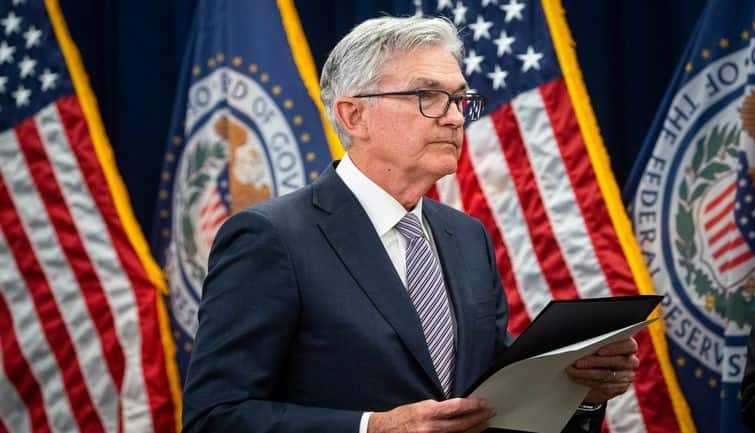US Federal Reserve Implements Significant Rate Cut
Introduction: In a surprising move, the US Federal Reserve has announced a substantial interest rate cut of 50 basis points, a decision that marks its first reduction since the onset of the COVID-19 pandemic. This announcement was made on September 18 at 11:30 AM Indian time, signaling a shift in monetary policy amid signs of improving inflation control. Economists had largely anticipated a more modest cut of 25 basis points, making this decision even more noteworthy.
Details of the Rate Cut
The Federal Reserve’s new policy rate will now range between 4.75% and 5.00%, down from the previous range of 5.25% to 5.50%. For over a year, this higher rate was a crucial strategy aimed at combating persistent inflation that impacted the economy. With global interest rate adjustments ongoing, this unexpected decision places the Fed in line with other central banks that have already reduced rates, including those in the UK, Eurozone, Canada, Mexico, Switzerland, and Sweden.
Economist Predictions vs. Actual Decision
Most economic analysts predicted a 25 basis point cut as the Fed’s next logical step, citing cautious optimism about inflation trends. However, reports, such as one from Wall Street Journal journalist Nick Timiraos, suggested that a more aggressive cut could be on the table. This bold move could be interpreted as a necessary response to economic conditions rather than a sign of fear from the central bank.
Global Context and Implications
The decision to cut rates comes in a global context where central banks are closely monitoring inflation and economic growth. With many countries already adjusting their rates downward, market participants will be watching closely to see how the US actions influence other economies. Furthermore, this cut could potentially stimulate consumer spending and boost economic confidence in the short term.
Impact on the Reserve Bank of India (RBI)
As the US Fed takes this critical step, the focus now shifts to the Reserve Bank of India (RBI) and its monetary policy stance. SBI Chairman CS Shetty cautions that uncertainty surrounding food inflation may inhibit the possibility of a rate cut by the RBI in the near future. The RBI has maintained its repo rate unchanged for eight consecutive meetings, following a rise to 6.5% in February 2023.
| Date | Action | Repo Rate (%) |
|---|---|---|
| 27 March 2020 | First cut during pandemic | 4.40 |
| 22 May 2020 | Further cut | 4.00 |
| 8 June 2022 | First increase post-pandemic | 4.90 |
| 5 August 2022 | Increase | 5.40 |
| 30 September 2022 | Increase | 5.90 |
| 7 December 2022 | Increase | 6.25 |
| 8 February 2023 | Last increase | 6.50 |
The RBI’s last adjustment came amid rising inflation concerns, leading to a cautious approach towards changes in the repo rate. Market sentiment gradually shifts towards anticipation of a potential rate cut as global economic conditions evolve.
Conclusion
The US Federal Reserve’s decision to cut interest rates significantly redefines the upcoming landscape for monetary policy not only in the United States but also globally. With the world watching, the RBI’s next moves will be critical in addressing both domestic inflation and ongoing economic growth challenges.












